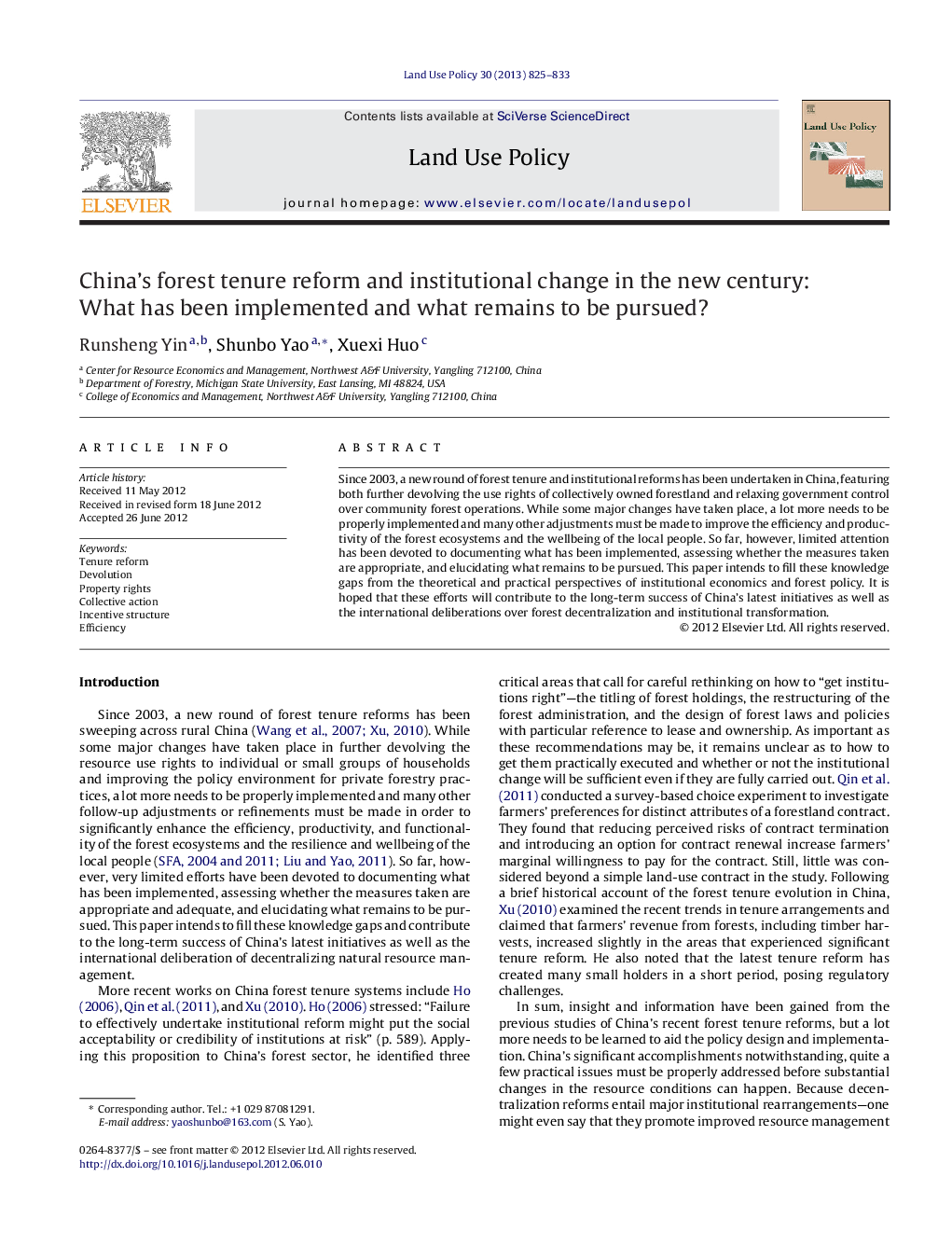| Article ID | Journal | Published Year | Pages | File Type |
|---|---|---|---|---|
| 93042 | Land Use Policy | 2013 | 9 Pages |
Since 2003, a new round of forest tenure and institutional reforms has been undertaken in China, featuring both further devolving the use rights of collectively owned forestland and relaxing government control over community forest operations. While some major changes have taken place, a lot more needs to be properly implemented and many other adjustments must be made to improve the efficiency and productivity of the forest ecosystems and the wellbeing of the local people. So far, however, limited attention has been devoted to documenting what has been implemented, assessing whether the measures taken are appropriate, and elucidating what remains to be pursued. This paper intends to fill these knowledge gaps from the theoretical and practical perspectives of institutional economics and forest policy. It is hoped that these efforts will contribute to the long-term success of China's latest initiatives as well as the international deliberations over forest decentralization and institutional transformation.
► China has taken steps to further devolve its collective forestland and modify its forest policy. ► There have been inconsistencies, conflicts, and maladaptations in the process, however. ► This paper assesses the advances and challenges that China's reforms have engendered. ► Dealing with the challenges will need to understand effective forest governance.
